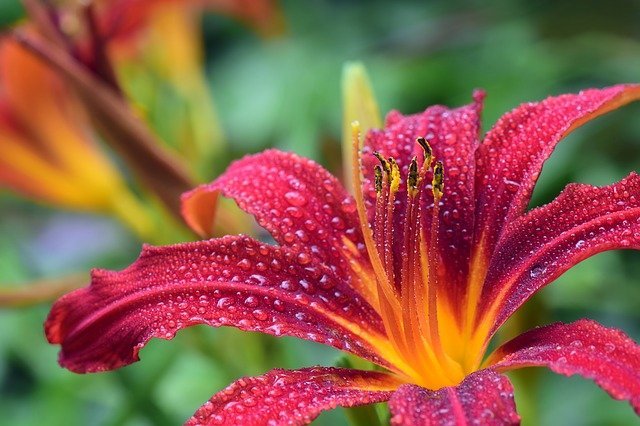
Some people want a way to improve their home’s look. Whatever type of landscape you want to create, try some of these tips to make the most out of what you have to get what you want!
Before beginning your project, be sure to learn the difference between plants–annuals and perennials, hardiness zones, bulbs and seeds. Do not forget to take different seasons into account when landscaping, too. Knowing these things will help you make the most of your yard and your landscaping budget.
Use native plants when landscaping. Native plants are easier to take care for because they are used to the area’s climate and soil. This makes for and make your landscaping maintenance easier. You could find information about plants that are local to the place you live by visiting your favorite gardening store.
Use a drip style system to water your plants. Installing these devices is a snap, and they supply your plants with a never ending supply of water. This is also a better way to efficiently water your plants effectively.
It is pretty tough to landscape an entire yard at once. Dividing your overall project into several parts will be easier on both you and your wallet. It can also assist you when you’re changing your design while carrying out in the process of landscaping.
Make sure to wisely choose the plants you will include in your yard, as it is an important part of how your landscape turns out. You’ll want to avoid placing plants that need lots of sunlight in areas that are shady. For example, don’t place a tree into a tiny spot where it can’t grow. Take the time to put your plants in areas where they can thrive.
Quality Products
Measure your work area before you go shopping for materials. This will allow you to more easily obtain the items you need for the project. This will help you not buy too much or too little of your materials.
Pick quality products that are made well and avoid cheap ones. In many stores, you will usually find reduced and low-quality products. Go to specialtystores to get top-notch products and helpful advice from qualified workers. It’s worth it to pay more for quality products and advice that truly work.
For the inexperienced do-it-yourself landscaper, it is a good idea to consult with a professional landscaper to get their professional opinion on your design. Making this small investment will save you time and money throughout your project. Though an hour of professional consultation may cost upwards of $75, it has the potential to save you lots of money down the road.
Landscaping is more than just planting different trees and trees. To give a professional look to your yard, look into using iron, wood or iron structures. Archways, birdbaths, birdbaths and pergolas all create beautiful and complex designs that are pleasing to the eye. You can purchase these at a number of different prices to suit anyone’s pocketbook.
If you are going to be the one mowing your lawn, use a mulching mower so the clippings will go back into the lawn. This will supply some good nutrients to your lawn as the grass decomposes, and you will not have to add fertilizer to your lawn as much as you would have otherwise.
Measure your work area that you will be planting before buying materials. This will make it easier for you to accurately determine how many of each type of item you need. This will help you not end up with either a shortage or too little of materials.
Stop thinking that spending less is always the way to go. While you can find fairly inexpensive supplies to do your project, the quality is probably not going to be what you are looking for. If you’re new when it comes to landscaping, specialty stores can give you better advice and guarantees, even though they are more pricey.
As you have probably now concluded, landscaping means different things to different people. Some people onle want to make minor improvements to their yard, and others aim for a beautiful artistic makeover. Using the tips above, any landscaping you do will look wonderful.
It can be hard to grow flowers around a large tree you may have in your yard for shade. Instead of making use of flowers, think of using ground covers instead. Plants that creep or spread along the ground add dimension and beauty to your landscape, and they are generally simple to maintain. Ground covers that perform well in shade include sweet woodruff and hostas.